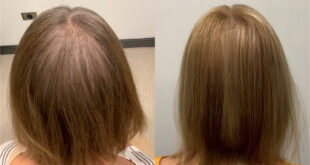OVERCOMING Panic Attacks . . . Anxiety . . . ADD . . . Meltdowns . . . Migraines . . . Racing Mind . . . Insomnia
Benefits of Neurofeedback? The Stories Say It All
by Michael Cohen, Director and Chief of Neurotechnology
Author of Neurofeedback 101: Rewiring the Brain for ADHD, Anxiety, Depression and Beyond
In 2017 I began the arduous journey of writing a book. I’m passionate about neurofeedback’s ability to dramatically change lives. I wanted to create something to educate and encourage both the general public and the medical community about this astounding, research-based technology that has been around for 50+ years.
As I planned the book’s content, I knew I wanted to include stories of clients of mine. These stories, which show, rather than tell, neurofeedback’s power are the best way I know to illustrate what neurofeedback can do. I’ve heard from readers that they really like the stories, so I’m sharing some of them in this article.
I’ve provided these examples not because they’re unusual but because they’re usual. My colleagues in the neurofeedback community and I see these types of outcomes all the time.
What is neurofeedback?
It’s computer-assisted biofeedback for the brain. Neurofeedback has been shown to improve brain timing in about 80 percent of people who do it which, in turn, improves their brain function. It can be an alternative to medication for brain issues (anxiety, depression, ADHD, migraines, PTSD, obsessive thinking, sleep issues and other unwanted conditions).
A nurse with panic attacks
A 27-year-old client finally had her dream job as an R.N. in a hospital. The problem was, she was nearly crippled by anxiety and frequent panic attacks.
Every day for a year she experienced a panic attack when arriving at work. She was terrified by the responsibility she had for people’s lives.
Xanax and an antidepressant helped a bit, but she still struggled badly, even on medications. And she didn’t want to keep taking them. She feared her career could be in jeopardy.
My approach included neurofeedback and biofeedback that targeted systems playing a role in her chronic anxiety and panic attacks.
She came once a week. After her first session, she noticed that she was notably calmer. Following her sixth session, she felt calm enough to get off her medications. After her tenth session, she decided she was well enough to discontinue training.
Too anxious to drive
A 40-year-old woman had anxiety caused by major trauma so extreme that she couldn’t drive. Even riding in the car as a passenger distressed her. She’d stare at the floor the entire time the car was moving, just to endure the ride.
After eight sessions, she was able to drive short distances and felt far less anxiety. Five additional sessions resulted in significant improvement and kept her from reverting to the anxiety level she’d experienced for years. She benefited from a combination of neurofeedback and another type of biofeedback we offer.
Woman gets off meds for depression after 15 years
A 54-year-old woman with depression and anxiety came to me after being on antidepressants for 15 years. She had tried unsuccessfully several times to get off her medication because of side effects.
A brain map revealed a pattern common to depression over the left frontal/temporal area, along with an anxiety profile over the right temporal area. We designed a targeted neurofeedback protocol to help her train.
After 15 neurofeedback sessions, she began working with her doctor to reduce her medication. By her 23rd session she was totally off her medications, without any of the challenges she had experienced previously trying to lower meds. She felt stable for the first time in years.
Man misdiagnosed with ADD discovered he wasn’t stupid (and didn’t have ADD)
A 29-year-old man had spent most of the first 24 years of his life thinking he was stupid or, at the very least, had a severe case of attention deficit disorder (ADD).
He was put on Ritalin in kindergarten and placed in special classes for slow learners. He was given stimulants throughout his school career, and beyond. Despite regular tutoring, he finished high school with a “D” average.
A brain map revealed significant learning disabilities, not an attention deficit. We targeted the areas of his brain that weren’t communicating well. After three months, with his doctor’s help, he discontinued his stimulant and mood medication. A few months later, his ability to read and comprehend improved dramatically. He was able to go into business and even built a house.
Boy’s meltdowns minimized
A six-year old boy had numerous, extreme meltdowns at home and school. After 14 sessions, his meltdowns had stopped and his neurofeedback training was discontinued.
Nurse practitioner migraine relief
A nurse practitioner suffered from migraine headaches for nearly 40 years. They were so severe she had to seek relief in the emergency room. Migraine medications usually helped her through the worst of the headache but didn’t fix the problem.
Over her first 10 neurofeedback sessions, she noticed improvements –fewer, less intense, shorter migraines.
By the time she’d completed 25 neurofeedback sessions, she was experiencing fewer and less intense migraines and was no longer taking migraine medications. After 10 additional sessions to solidify her gains and to work on some anxiety issues, she remained nearly migraine-free a year later.
40-year-old mental health clinician who couldn’t quiet his racing mind
A mental health therapist taking one of my professional courses told me that his mind had been racing since he was young and that he endured non-stop conversations in his head.
Following his fourth session, he reported a complete quieting of his mind, which lasted several days (he returned to his home out-of-state.) He could not remember experiencing that kind of calm mind in his life. He decided after his brief experience to include neurofeedback in his practice and to continue to train himself as well.
Desperate for sleep
A 55-year-old man got less than 20 minutes of deep sleep a night (abnormally low), causing significant impairment. He’d seen numerous sleep doctors and primary care doctors who couldn’t help.
Over the course of about 15 training sessions, his sleep consistently improved. After another 10 sessions, he reported that his sleep had completely normalized.
More stories
For more stories like these, visit
https://www.centerforbrain.com/client-stories/.
Call today If you’re struggling with a brain-based issue, don’t give up. Call the Center for Brain Training for details or to book a free consultation.
About Michael Cohen
Michael “Mike” Cohen is a leading expert in brain biofeedback. Over the past 20+ years, he’s helped thousands of clients and taught neurofeedback to more than 2,500 physicians and mental health professionals around the world. He’s author of Neurofeedback 101: Rewiring the Brain for ADHD, Anxiety, Depression and Beyond, a comprehensive book for general audiences that explains neurofeedback simply.
Welltower Center
550 Heritage Drive, Suite 140, Jupiter, FL 33458
Phone: 561-744-7616, Text: 561-291-9562
www.CenterforBrain.com
Check Also
The Latest Technology With Hearing Aids
Many modern electronic devices these days come equipped with Bluetooth technology. This feature lets you …
 South Florida Health and Wellness Magazine Health and Wellness Articles
South Florida Health and Wellness Magazine Health and Wellness Articles




